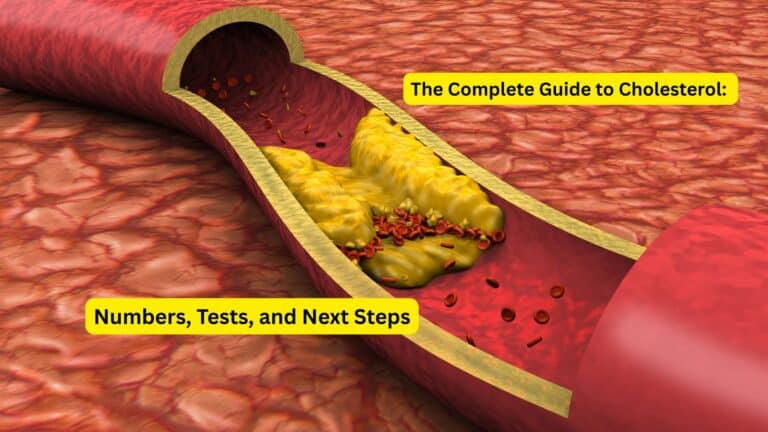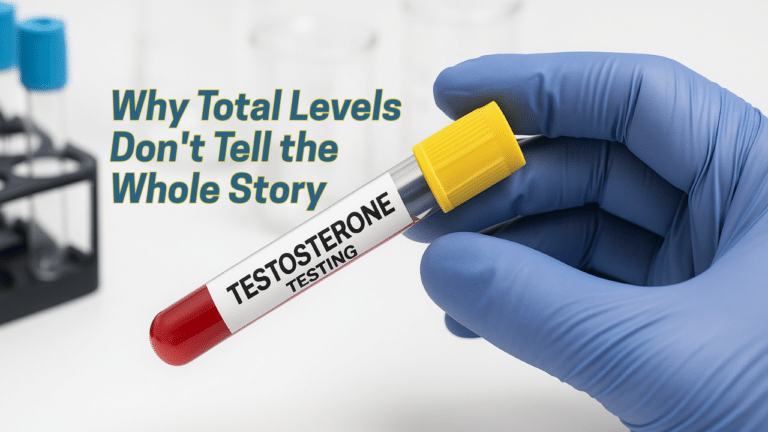Intermittent fasting (IF) is a dietary pattern that cycles between periods of eating and fasting, offering a flexible approach to nutrition that doesn’t dictate what to eat, but rather when to eat. This eating strategy has gained significant attention in recent years, particularly for its potential to support metabolic and liver health. As liver-related conditions like non-alcoholic fatty liver disease (NAFLD) continue to rise, affecting over one in five adults in the United States, understanding evidence-based lifestyle interventions becomes increasingly important for preventive health management.
The growing body of research suggests that intermittent fasting may offer powerful benefits for liver function through multiple biological mechanisms. From enhancing cellular cleanup processes to improving insulin sensitivity, IF presents a promising tool for supporting liver health when implemented safely and appropriately.
How Intermittent Fasting Supports Liver Health
Intermittent fasting influences liver health through several interconnected biological pathways that work together to optimize liver function and protect against disease. These mechanisms address key factors that contribute to liver dysfunction, including metabolic dysregulation, cellular damage, and chronic inflammation. Understanding these processes helps explain why IF has shown such promising results in clinical studies.
Improves Insulin Sensitivity
One of the most significant ways intermittent fasting benefits the liver is by enhancing insulin sensitivity. When cells become more responsive to insulin, the body requires less of this hormone to maintain stable blood sugar levels, reducing the likelihood of excess glucose being converted to fat and stored in the liver. IF improves insulin sensitivity, a crucial factor in preventing and managing liver diseases such as NAFLD, creating a favorable metabolic environment that supports liver health.
This improved insulin sensitivity helps break the cycle of fat accumulation in liver cells, which is a hallmark of fatty liver disease. By reducing hepatic fat storage, intermittent fasting can help reverse existing liver damage and prevent further progression of liver-related metabolic disorders.
Promotes Autophagy
Autophagy, often called the body’s cellular “housekeeping” process, becomes particularly active during fasting periods. This biological mechanism allows cells to break down and recycle damaged components, clearing out cellular debris and dysfunctional proteins that can impair liver function. IF promotes autophagy, a cellular recycling process that helps clear damaged liver cells and supports liver regeneration.
During fasting periods, liver cells can focus their energy on repair and regeneration rather than processing nutrients. This cellular renewal process is essential for maintaining optimal liver function and may help the liver recover from previous damage caused by poor diet, toxin exposure, or metabolic stress.
Reduces Inflammation & Oxidative Stress
Chronic inflammation and oxidative stress are key drivers of liver disease progression, contributing to cell damage and fibrosis over time. Intermittent fasting has been shown to reduce inflammatory markers and oxidative stress throughout the body, including in liver tissue. This anti-inflammatory effect helps protect liver cells from ongoing damage and may slow or reverse the progression of liver disease.
The reduction in oxidative stress also supports the liver’s natural detoxification processes, allowing this vital organ to more effectively process toxins and metabolic waste products without becoming overwhelmed or damaged in the process.
Liver Enzyme Improvements
Clinical evidence demonstrates that intermittent fasting can lead to measurable improvements in liver function tests. IF interventions have demonstrated improvements in liver enzyme levels (ALT, AST), reductions in hepatic fat, and decreased liver stiffness in clinical trials among NAFLD patients. These biomarkers are important indicators of liver health, with elevated levels often signaling liver inflammation or damage.
The improvements in liver enzymes suggest that intermittent fasting doesn’t just provide theoretical benefits but creates real, measurable changes in liver function that can be tracked through routine blood tests.
Best Intermittent Fasting Protocols for Liver Benefits
Different intermittent fasting approaches offer varying levels of intensity and flexibility, making it possible to find a protocol that fits individual lifestyles and health goals. Research has examined several popular IF methods, each showing unique advantages for liver health. The key is choosing a sustainable approach that can be maintained long-term for optimal benefits.
Time-Restricted Feeding (16:8)
The 16:8 method involves fasting for 16 hours and eating within an 8-hour window each day, making it one of the most popular and accessible forms of intermittent fasting. This approach typically involves skipping either breakfast or dinner, allowing people to maintain social eating patterns while still gaining metabolic benefits. The daily rhythm of this protocol aligns well with natural circadian cycles, which may enhance its effectiveness for liver health.
Many people find the 16:8 method sustainable because it can be adapted to different schedules and doesn’t require complete fasting days. The consistent daily pattern helps regulate metabolic processes and provides regular periods for cellular repair and autophagy activation.
Alternate-Day Fasting
Alternate-day fasting involves alternating between days of normal eating and days of significant calorie restriction or complete fasting. This approach has shown particular promise for weight loss and metabolic improvements, both of which directly benefit liver health. The more intensive nature of this protocol may accelerate some of the cellular repair processes associated with fasting.
However, alternate-day fasting can be more challenging to maintain long-term and may not be suitable for everyone, particularly those with certain medical conditions or high physical activity requirements.
5:2 Diet
The 5:2 IF regimen (5 days normal eating, 2 days calorie restriction) shows promise in reducing liver inflammation and fatty liver, also lowering risk for liver cancer in animal models. This approach involves eating normally for five days of the week while restricting calories to about 500-600 on two non-consecutive days.
The 5:2 diet offers a middle ground between daily time-restricted feeding and more intensive fasting protocols. Many people find this approach more manageable than daily fasting while still experiencing significant health benefits. The flexibility of choosing which two days to restrict calories allows for better integration with social and work schedules.
Evidence & Research Findings
Scientific research supporting intermittent fasting’s benefits for liver health continues to grow, with studies ranging from cellular research to human clinical trials. The evidence spans multiple types of investigations, providing a comprehensive picture of how IF affects liver function and health outcomes. These findings help establish IF as a legitimate therapeutic approach for liver health rather than just a dietary trend.
A systematic review involving 840 participants with NAFLD found IF significantly improved weight, BMI, liver enzymes (ALT, AST), hepatic fat, and stiffness after 4-52 weeks of fasting interventions. This large-scale analysis provides strong evidence that intermittent fasting produces measurable improvements in liver health markers across diverse populations.
Research from Stanford Medicine has revealed that intermittent fasting spurs liver cell proliferation in experimental settings, suggesting potential liver repair and regenerative benefits. This finding suggests that IF doesn’t just prevent liver damage but may actively promote healing and regeneration of liver tissue.
Animal studies have provided additional insights into the long-term protective effects of intermittent fasting. Research has shown that fasting protocols can reduce the risk of liver cancer development, likely through the combination of reduced inflammation, improved metabolic health, and enhanced cellular repair mechanisms.
Risks and Safety Considerations
While intermittent fasting offers significant potential benefits for liver health, it’s not appropriate for everyone and can cause side effects, particularly during the initial adaptation period. Understanding these risks helps ensure safe implementation and allows individuals to make informed decisions about whether IF is right for them. Proper preparation and gradual implementation can minimize many potential adverse effects.
Common side effects during the initial weeks of intermittent fasting include headaches, dizziness, fatigue, and irritability as the body adjusts to new eating patterns. These symptoms typically resolve as the body adapts to using stored fat for energy during fasting periods. Staying well-hydrated and ensuring adequate nutrition during eating windows can help minimize these effects.
Certain individuals should exercise extra caution or avoid intermittent fasting altogether. People with diabetes, particularly those taking insulin or other blood sugar-lowering medications, need medical supervision to prevent dangerous blood sugar fluctuations. Those with advanced liver disease, eating disorders, or a history of gallbladder problems should consult healthcare providers before starting any fasting regimen.
Pregnant and breastfeeding women, children, and elderly individuals with multiple health conditions generally should not practice intermittent fasting without close medical supervision. The increased nutritional needs during these life stages make regular eating patterns more appropriate for maintaining health.
Practical Best Practices
Successfully implementing intermittent fasting for liver health requires more than just restricting eating windows; it involves creating a comprehensive approach that supports overall health and maximizes benefits. The quality of food consumed during eating periods significantly impacts the effectiveness of IF for liver health. Proper planning and gradual implementation increase the likelihood of long-term success and minimize potential side effects.
Combining intermittent fasting with a balanced, nutrient-dense diet amplifies liver health benefits. Focus on whole foods including lean proteins, healthy fats, complex carbohydrates, and plenty of vegetables during eating windows. Avoid processed foods, excessive sugar, and alcohol, which can counteract the liver-protective effects of fasting.
Regular physical activity complements intermittent fasting by further improving insulin sensitivity and supporting weight management. Both cardiovascular exercise and resistance training can enhance the metabolic benefits of IF while supporting overall liver health.
Staying properly hydrated during fasting periods is crucial for maintaining liver function and supporting the body’s natural detoxification processes. Water, herbal teas, and other non-caloric beverages help maintain hydration without breaking the fast.
Regular monitoring through liver function testing can help track progress and identify any potential issues early. Baseline testing before starting IF, followed by periodic monitoring, provides objective measures of improvement and helps ensure the chosen protocol is beneficial rather than harmful.
FAQs
What is intermittent fasting?
Intermittent fasting is a dietary pattern that alternates between periods of eating and fasting, such as time-restricted feeding (like 16:8), alternate-day fasting, or the 5:2 diet. Unlike traditional diets that focus on what to eat, IF focuses on when to eat.
Can IF reverse fatty liver?
Emerging evidence shows IF can reduce hepatic fat and liver inflammation, improving conditions like NAFLD. While more extensive human studies are needed, current research suggests IF may help reverse fatty liver disease when combined with other healthy lifestyle practices.
How long should I fast for benefits?
Methods vary depending on the protocol chosen. Common approaches include daily 16-hour fasts (16:8 method) or 5:2 diets with two low-calorie days per week. Consistency over weeks to months is important for seeing meaningful benefits.
Are there risks to intermittent fasting?
Side effects may include headaches, dizziness, fatigue, and irritability, particularly during the initial adaptation period. People with health conditions like diabetes, advanced liver disease, or eating disorders should consult healthcare professionals before starting any fasting regimen.
Which IF method is best for beginners?
The 16:8 time-restricted feeding method is often recommended for beginners because it’s easier to implement and maintain. Starting with a 12-hour fast and gradually extending to 16 hours allows for better adaptation and reduces the likelihood of adverse effects.
Conclusion
Intermittent fasting represents a promising, evidence-based approach to supporting liver health through multiple biological mechanisms including improved insulin sensitivity, enhanced autophagy, reduced inflammation, and measurable improvements in liver function markers. The growing body of research demonstrates that various IF protocols can be effective tools for preventing and managing liver-related metabolic disorders when implemented safely and appropriately.
While intermittent fasting offers significant potential benefits, it should be viewed as one component of a comprehensive approach to liver health that includes proper nutrition, regular exercise, and appropriate medical care. Regular monitoring through liver function testing provides valuable feedback on progress and helps ensure that chosen interventions are producing the desired results. As with any significant dietary change, consulting with healthcare providers before starting intermittent fasting ensures safe implementation tailored to individual health needs and circumstances.





